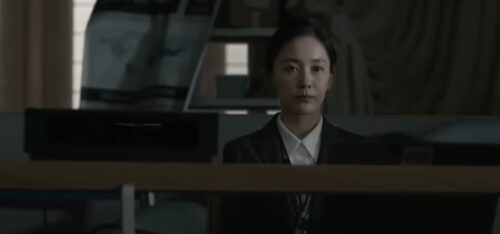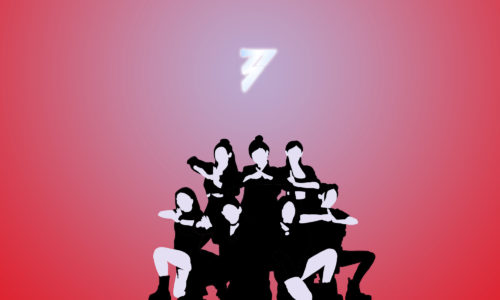Mixed reaction for animated adaptation of science-fiction hit ‘The Three-Body Problem’
A highly anticipated TV series based on a globally successful science fiction trilogy premiered over the weekend and broke viewing records — but not everyone thinks it lived up to the hype. Meanwhile, Netflix might be the next streamer to woo fans with the closest thing China has to the Star Wars franchise.

From comparisons to an “overload of cheap visual effects” to a “pivotal moment of Chinese animation history,” the premiere of The Three-Body Animation — an animated series based on the award-winning science-fiction trilogy by Liú Cíxīn 刘慈欣 — has drawn mixed reactions from Chinese viewers.
Out over the weekend on Chinese online video-streaming platform Bilibili, which co-produced the series with Wuhan-based anime studio YHKT Entertainment, The Three-Body Animation is an adaptation of The Dark Forest, the second book in Liu’s Remembrance of Earth’s Past trilogy. The 15-part series, which saw its first two episodes released on December 10, was an instant hit following its premiere, drawing a record-setting viewership on Bilibili with a whopping 130 million plays as of Monday.
China news, weekly.
Sign up for The China Project’s weekly newsletter, our free roundup of the most important China stories.
Billed by the streaming site as its “biggest animation investment” to date, the series focuses on Yè Wénjié 叶文洁, a Chinese scientist tasked by the government to spy on alien counterparts to learn their secrets. The project was originally announced by Bilibili in 2019, when the first trailer for it launched to positive reviews across the board. In the following years, a prolonged period of development followed, with the streaming giant announcing multiple delays with the release for unspecified reasons.
So naturally, when The Three-Body Animation finally arrived after years of anticipation, it got fans talking. Following the premiere, several hashtags related to the series trended on Chinese social media over the weekend, but most of them were negative. Under the hashtag “The modeling for The Three-Body Animation is so ugly” #三体建模丑#, which so far has garnered more than 2 million views on Weibo, fans of the original griped about technical issues, such as stiff movements and limited facial expressions of the characters.

“The visuals are so awful that they cracked me up,” a Weibo user wrote, while another person complained on Chinese reviews site Douban, “I thought it’s unfair to judge characters’ acting in an animated series, but this one really proved me wrong.”
Weak storytelling and poor dialogue writing are other main subjects of criticism. Viewers unfamiliar with the book were particularly confused by the lack of explanation in the first two episodes, saying that they felt the series was made only for people who have read the book. Some took aim at the producer’s decision to skip the first book of the trilogy, which is set against the backdrop of China’s Cultural Revolution — a sensitive topic in the country — and lays the groundwork for decisions made by Ye in the two sequels.
However, not everyone was left unsatisfied. Some comments on Douban said the content had lived up to their expectations. “We should appreciate the work that went into it and acknowledge how tough it is to create something in today’s cultural environment. It has laid the foundation for more adaptations of Chinese science-fiction in the future and some bitter critics need to be more forward-looking,” a Douban user who gave the show five out of five stars wrote.
Released in 2008 as a stand-alone book after being previously serialized in the Science Fiction World magazine in 2006, The Three-Body Problem is the first book in Liu’s best-selling apocalyptic space opera trilogy, which tells an epic story of the first contact between humanity and an alien civilization, presenting a complex narrative that boomerangs through Chinese history across time and space.
When the English translation of the book came out in 2014, it was hailed as a groundbreaking work of speculative fiction and earned a legion of Western fans, including President Barack Obama, Mark Zuckerberg, and George R. R. Martin, the mastermind behind the fantasy series Game of Thrones. The accolades helped the book win the Hugo Award for Best Novel, one of the genre’s most prestigious honors, in 2015, making Liu the first Asian author to win the prize for best novel. The book and its two sequels went on to sell nearly 9 million copies worldwide.
Seen by the Chinese government as one of its biggest cultural exports in modern times, Liu’s book series quickly grew into a franchise with a slew of spin-offs announced to be in development. Under a government-led initiative called the Three-Body Global Creator Project, animation studios around the world are encouraged to explore the franchise to showcase its potential to connect with audiences outside China, and Bilibili’s adaptation is the first product to be born out of it.
In other media, Chinese tech and entertainment conglomerate Tencent is producing a live-action version of The Three-Body Problem, though the company has yet to announce a specific release date for the adaptation. Meanwhile, American streaming giant Netflix recently announced that it had completed production on the first season of its live-action adaptation of the novel. With Game of Thrones showrunners David Benioff and D. B. Weiss leading the project, the series is set to premiere next year.






